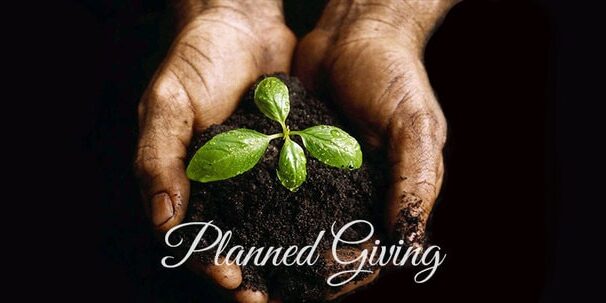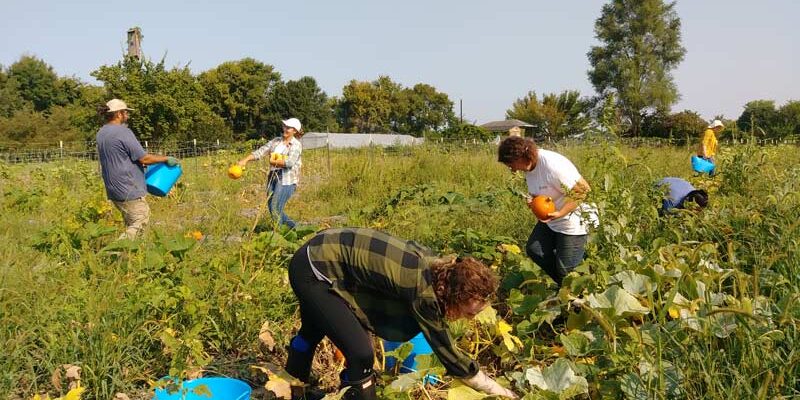Conscience, Candidates and Discipleship in Voting – Part One
During a recent gathering with women and men Religious, Cardinal Blaise Cupich was asked, in light of the coming elections, what resources were available to address the deep divisions within our nation as well as divisions in our Church. His immediate reply was to mention an address given by Bishop Robert W. McElroy at the University of San Diego on Feb. 6, 2020. In this talk, Bishop McElroy moves from Pope Francis’ “Evangelii Gaudium” to relevant issues of Catholic Social Teaching as he calls Catholic women and men, rooted in conscience and in faith, to action.
In preparing to vote, you are called to action. You are invited to ponder the message in this document, “Conscience, Candidates and Discipleship in Voting,” and then share the talk with three to five others. Given the length of the talk, it will appear in three segments. Part one follows:
In Evangelii Gaudium, Pope Francis points powerfully to the vocation of faith-filled citizenship:
“An authentic faith … always involves a deep desire to change the world, to transmit values, to leave this earth somehow better than we found it. We love this magnificent planet on which God has put us, and we love the human family which dwells here, with all of its tragedies and struggles, its hopes and aspirations, its strengths and weaknesses. The earth is our common home and all of us are brothers and sisters. If indeed ‘the just ordering of society and of the state is a central responsibility of politics,’ the Church ‘cannot and must not remain on the sidelines in the fight for justice.’”

It is primarily through the votes of Catholic women and men, rooted in conscience and in faith that the Church enters into the just ordering of society and the state.
And it is primarily in voting for specific candidates for office that believers as citizens have the greatest opportunity to leave the earth better than we found it.
Yet comparatively little attention has been paid in Catholic moral theology to the moral nature and structure of the act of voting for specific candidates. Much focus is placed on individual policy issues and their moral implications in Catholic social teaching. If the primary role of citizens were to vote on specific issues, this might be sufficient. But a vote for individual candidates inevitably encapsulates a wide range of policy options reaching out into the future, as well as varying capacities and intentions among the candidates. Where does Catholic theology begin assisting believers to carry out their role of ennobling the world?
Pope Francis answers this question by proposing starkly that our political lives must be seen as an essential element of our personal call to holiness. This certainly means that our political actions must reflect and flow from our Catholic faith. But Francis is demanding much more. He proposes that we can only fulfill our vocation as faithful citizens if we come to see in the very toxicity of our political culture at the current moment a call for deeper conversion to Jesus Christ. It is not enough for us to ignore the corrosive elements of political life in the United States, nor even to navigate our role as citizens and voters without succumbing to the tribalism that bisects our society. We are called in our lives as citizens and believers to be missionaries of dialogue and civility in a moment that values neither. And this requires deep spiritual reflection, courage and judgment. It demands a Christ-like dedication to seeking the truth no matter where it may lie, and defining our politics and voting in the light of the Gospel.
Salient Issues of Catholic Social Teaching
In this task, the principles of Catholic social teaching as they are applied to the core political issues of American society today provide a rich and sacred source of guidance in weighing the policy proposals of competing candidates.
The comprehensiveness of Catholic social teaching points toward an understanding of justice, life and peace that refuses to be confined to narrow boxes or relegated to partisan categories. At the same time, this very comprehensiveness makes the prioritization of Catholic teachings difficult for voters. As the 2020 election cycle begins, at least 10 salient goals emerge from the Gospel and the long tradition of Catholic faith:
- The promotion of a culture and legal structures that protect the life of unborn children,
- The reversal of the climate change that threatens the future of humanity and particularly devastates the poor and the marginalized,
- Policies that safeguard the rights of immigrants and refugees in a moment of great intolerance,
- Laws that protect the aged, the ill, and the disabled from the lure and the scourge of euthanasia and assisted suicide,
- Vigorous opposition to racism in every form, both through cultural transformation and legal structures,
- The provision of work and the protection of workers’ rights across America,
- Systematic efforts to fight poverty and egregious inequalities of wealth,
- Substantial movement toward universal nuclear disarmament, and
- The protection of religious liberty.
Frequently in discussions of the applications of Catholic social teaching to voting, the question is raised whether one issue has a unique priority among all of the other issues in its claim upon believers in the current election cycle. Some have categorized abortion in that way. Others, climate change. This question deserves deeper scrutiny.
More than 750,000 unborn children are directly killed in the United States every year. At one time, there was bipartisan support for erecting policies that made abortion rare. Now that commitment has been eviscerated in the Democratic Party in a capitulation to notions of privacy that simply block out the human identity and rights of unborn children. Even in an age when sonograms testify with the eloquence of truth and life itself that children in the womb are genuinely our brothers and sisters, our daughters and sons, the annihilation of their humanity in perception and in fact continues. Catholic social teaching has consistently demanded that there be legal protections for the unborn, as they are the most vulnerable and victimized of humanity. But we are rapidly moving toward becoming a nation split in two: With half of our country moving toward laws safeguarding the unborn and the other half of our country adopting even more extreme laws that allow the killing of children on the verge of birth. The passage of the New York abortion law this past year was a marker of America’s repudiation of the most basic principles of human life. It is for all of these reasons that so many in the Church consider abortion to be the preeminent political imperative at stake in 2020.
At the same time, there is a clear international scientific consensus that climate change caused by the use of fossil fuels and other human activities poses an existential threat to the very future of humanity and that air pollution resulting from fossil fuels is already a major cause of premature death on our planet.
Existing trajectories of pollutants being placed in the atmosphere by human activity, if unchecked, will raise the temperature of the earth in the coming decades, generating catastrophic rises in human exposure to deadly heat, devastating rises in water levels and massive exposure to a series of perilous viruses. In addition, there will be severe widespread famines, droughts and massive dislocations of peoples that will cause untold deaths, human suffering and violent conflict. The devastating fires in Australia are a sign of what lies before us, and a testimony that, on so many levels, our current pollution of the earth is stealing the future from coming generations. Because the trajectory of danger unleashed by fossil fuels is increasing so rapidly, the next 10 years are critical to staunching the threat to our planet. The United States, which was once a leader in this effort, has in the current Administration become the leader in resisting efforts to combat climate change and in denying its existence. As a consequence, the survival of the planet, which is the prerequisite for all human life, is at risk.
Watch for Part two of Bishop McElroy’s address. The entire talk may be accessed here.



Are you supporting the bishop in everything he says in his address or publishing it just for discussion? I understand that you are inviting readers to think about & discuss the address, but I wondered if you, the committee, agree with his comments and emphases, most importantly specifically on abortion. In the bishop’s address, he places that as the first “salient goal” of the Gospel and/or “the long tradition of Catholic faith.” By placing this issue in the No.1 position on his list, the bishop gives it priority among all his other points. This will turn the election into a single-issue election in the eyes of many Catholics when in fact there are more pressing issues on our doorstep in the eyes of many at this time !
Are you personally, as the committee, promulgating and recommending the document? If not, one simple solution would be to shift the bishop’s No. 1 point to a lower position in his list.
Additionally, in the paragraph on abortion McElroy says the Democrat party is eviscerating the commitment to abortion. In fact, the Democratic party is NOT eviscerating any commitment to the rights of the unborn. Most Democrats still believe abortion should be “safe, legal, and rare” but should be left to the woman, her doctor, and her clergyperson; it’s a personal decision which the government should not interfere with. Unfortunately, this mischaracterization of Democrats reflects the Catholic hierarchy’s favoring of the Republican party in general. I cry Foul! The Republican party espouses several unchristian principles: favoring the wealthy with tax breaks, electing a president who lies a lot, opposing workers’ unions, not granting fair wages, stacking the Supreme Court unconscionably with ultraconservatives, and implementing various unfair voter suppression tactics, to name just a few.
Perhaps in the second installment of the bishop’s address, you could include a disclaimer regarding the abortion issue or anything else in his remarks that are questionable. Unless, of course, you DO agree with everything he says.
Dear Mary: I’ve been a devout Catholic, Christian my entire life. I personally know of woman who treat abortions like buying candy. They have had several. In and out they say. WOW! If those babies were given up for adoption, how many blessed and joyous children and parent’s there could be. I pray as we all do to protect life every day. Have a beautiful day.
I agree, Bettie. What you describe doesn’t sound like a very healthy lifestyle to say nothing about a respect for human life! To your point, statistics show that 45% of women getting abortions have had more than one.! But you can also read online about the dire circumstances some women are in which lead to multiple abortions. The main point I’m making is that abortion should not be the only issue an individual considers when voting. It’s equally or more important, imho, to see to it that every child born is treated well and given a fair start in life. And, secondly, the bishop should not be trashing the Democrat party because of this one issue. The other party has its major sins to account for too. Actually, I think most people these days have gotten over the one-issue way of voting but the bishop drums on it anyway.